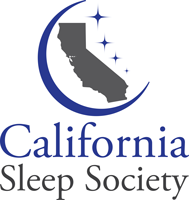By: Robyn Woidtke, RN, RPSGT
Why should we care about and recognize polycystic ovarian syndrome (PCOS) in sleep health? This “very” brief overview is aimed to answer some of those questions. Additionally, an objective would be to create an interest in reaching out to our gynecological colleagues with regards to this issue, if same is not already being done. There is a clinical recognition gap–that woman with PCOS are at a higher risk of sleep problems and obstructive sleep apnea (OSA), which provides the sleep community with an opportunity improve this clinical disparity.
PCOS is a common condition which impacts about 3%-10% of women of reproductive age.(1) Generally, the patient has irregular menstrual cycles, may or may not have ovarian cysts and has excess androgen production and lower levels of progesterone. The hormone imbalance causes hirsutism, severe acne and infertility, obesity, and insulin resistance and type 2 diabetes.(1)(2) Women with PCOS may also present with depression and anxiety. The condition is quite heterogeneous with inconsistent diagnostic criteria. It is estimated that 75% of those with the condition are not diagnosed when visiting their provider. Interestingly, lack of provider knowledge is cited as a barrier to care.(1) Also interesting was the fact that the varying diagnostic criteria also provides differing prevalence data depending on which criteria was used, it sounded a bit like what we experience in sleep medicine with various AHI cutoffs and criteria.(1)(2)
Although OSA is cited as the most frequent sleep problem (more on that later) other sleep problems have a much higher incidence in PCOS than the general population, although much of the data was collected on PCOS women with obesity which can contribute to poor sleep, the data demonstrate a two-fold increase in difficulty achieving and maintaining sleep in women with PCOS. There are several mechanisms which may contribute to sleep problems in PCOS including anxiety and depression. In addition to the hormonal imbalances, adult women with PCOS are a high-risk population for development of metabolic and cardiovascular consequences, add OSA and the risk even becomes more acute.(3) Sleep disturbances also have daytime ramifications with excessive sleepiness, fatigue, and potential for workplace accidents.(3)
OSA in PCOS has been demonstrated to have a much higher than normal prevalence than in non-PCOS controls. This may be linked to obesity, age, hyperandrogenism, lower levels of progesterone (known to be a respiratory stimulant) and changes in melatonin secretion.(4)(5) Several systematic reviews and meta-analysis have been conducted which demonstrate that older PCOS patients, but not adolescents, have much higher odds of having OSA. One meta-analysis determined that a 9.74 higher risk was conferred in patients with PCOS than without, however, this was in older and heavier women.(5) There are data to support that in PCOS there are increased metabolic abnormalities which can be made worse when combined with OSA.
This brief communication is not intended to be comprehensive review, but rather to pique the readers interest in this topic. In conclusion, PCOS is a condition that sleep professionals should be aware of and understand the bidirectionality of the condition on sleep health. Communication with patients and practitioners alike may improve the clinical gap.
(1) Wolf, W. M., Wattick, R. A., Kinkade, O. N., & Olfert, M. D. (2018). Geographical prevalence of polycystic ovary syndrome as determined by region and race/ethnicity. International journal of environmental research and public health, 15(11), 2589.
(2) Fernandez, R. C., Moore, V. M., Van Ryswyk, E. M., Varcoe, T. J., Rodgers, R. J., March, W. A. & Davies, M. J. (2018). Sleep disturbances in women with polycystic ovary syndrome: prevalence, pathophysiology, impact and management strategies. Nature and science of sleep, 10, 45.
(3) Sam, S., & Ehrmann, D. A. (2019). Pathogenesis and consequences of disordered sleep in PCOS. Clinical Medicine Insights: Reproductive Health, 13, 1179558119871269.
(4) Kahal, H., Kyrou, I., Uthman, O., Brown, A., Johnson, S., Wall, P. & Randeva, H. S. (2018). The association between obstructive sleep apnea and metabolic abnormalities in women with polycystic ovary syndrome: a systematic review and meta-analysis. Sleep, 41(7), zsy085.5
(5) Helvaci, N., Karabulut, E., Demir, A. U., & Yildiz, B. O. (2017). Polycystic ovary syndrome and the risk of obstructive sleep apnea: a meta-analysis and review of the literature. Endocrine Connections, 6(7), 437-445.

